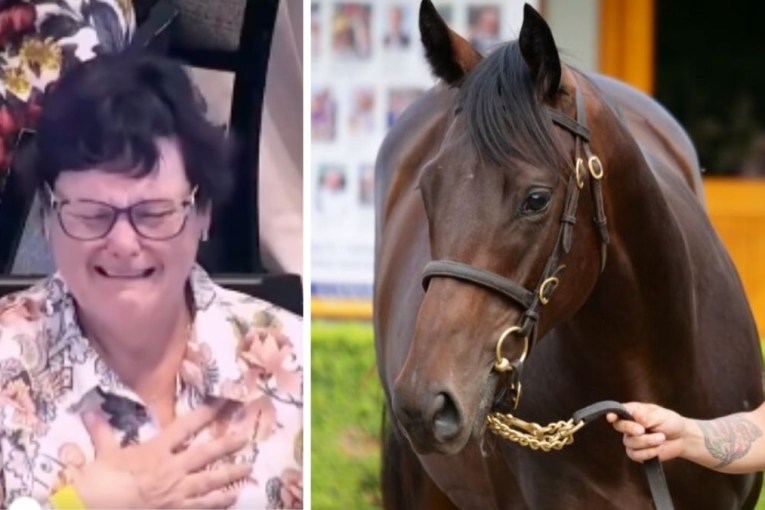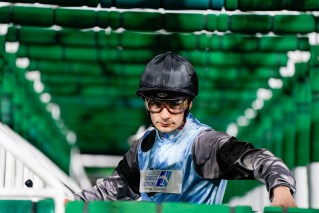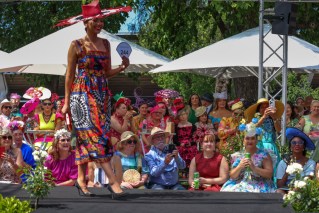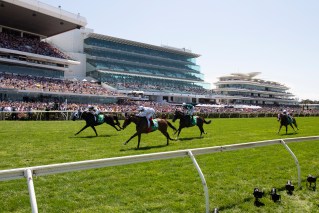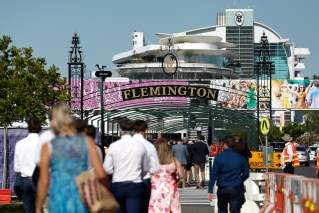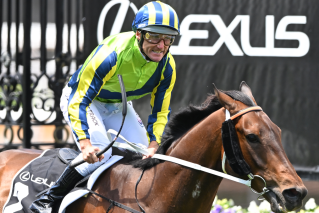The scourge of online betting ads has become a national disgrace
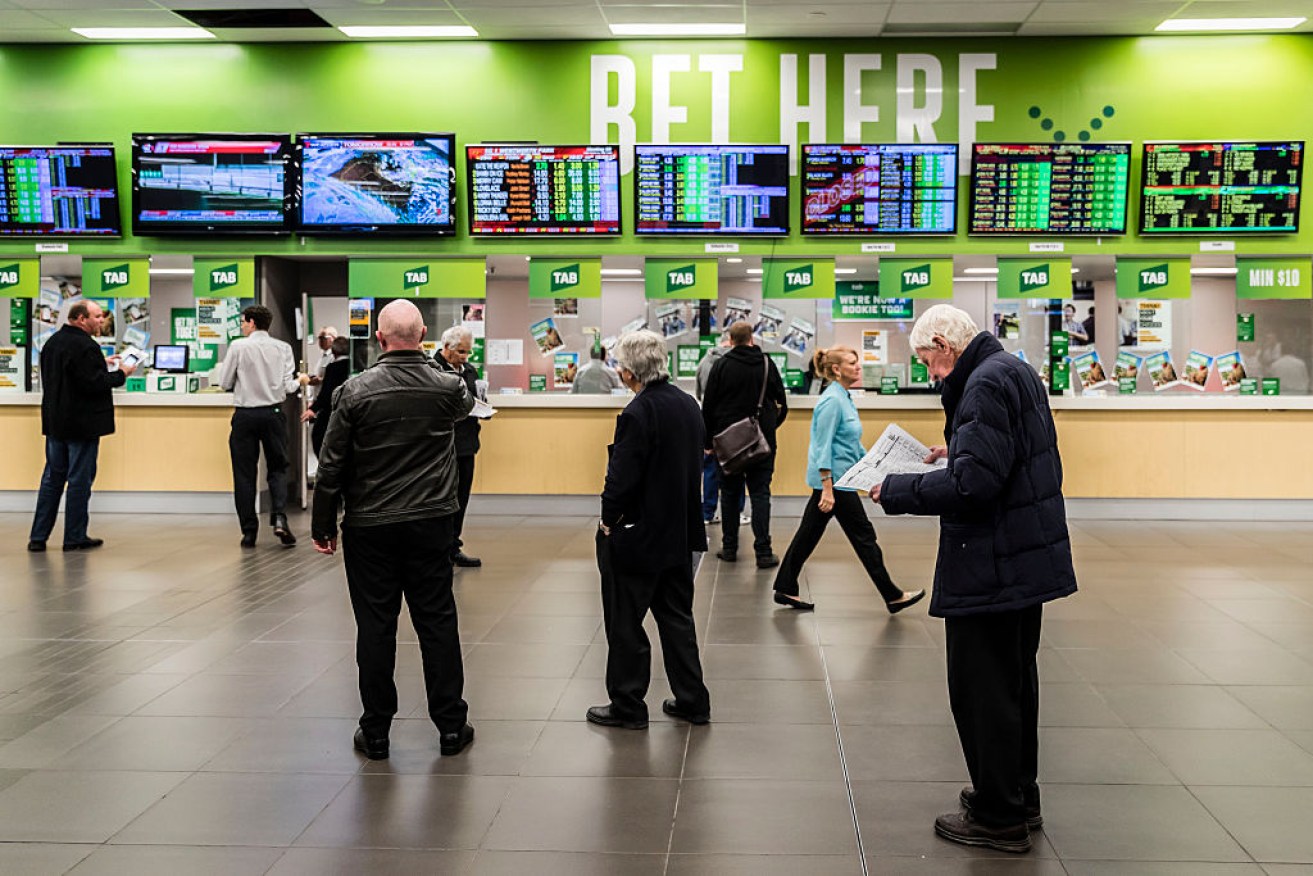
But there’s nothing very regal about a suburban TAB on a Saturday afternoon. Photo: Getty
Has Australia reached ‘peak punt’?
If the amount of gambling advertising seen during the Melbourne Cup carnival is anything to go by, clearly not.
The bookies, with their saturation marketing on TV and online, are sucking the fun out of it all.
Earlier this year, the gambling industry’s estimated their annual spend on television advertising to be between $120 million and $150 million.
According to the Australian Financial Review, Crownbet spent $99 million on ‘marketing expenses’ in the last financial year.
Figures like that – the net result being that 10-year-old kids can’t get through a game of footy without having their brains spammed by corporations spruiking odds – prompted the federal government to introduce restrictions on betting advertising on TV.
Under the new rules, betting ads are banned from five minutes before the start of a sporting event until five minutes after, or 8.30pm – whichever comes first.
But there were catches: the restrictions didn’t apply to horse racing, and there’s the fact that, increasingly, more games of AFL, NRL and A-League are going much later than 8.30pm.
You could understand the amnesty on thoroughbreds – betting is the lifeblood of the sport, and without it racing would not exist.
But how much is too much?
Sportsbet certainly got their pound of flesh during Channel 7’s coverage of the Spring Carnival – their wall-to-wall advertising was nauseating.
And TV isn’t the only medium where this cancer is spreading out of control.
Those tuned to www.racing.com’s coverage were subjected to Bet365 living up to their name with a brutal display of persistence.
There were reports of Sportsbet and Bet365 texting prospective punters with offers, while Crownbet certainly did:
Anyone else get this text from @crownbet? Don't recall giving them my number. pic.twitter.com/rN2mIWNLu1
— Jonno Simpson (@JonnoSimpson) November 6, 2017
The problem is not a new one.
“Unlike most Western nations, Australian governments have actively encouraged a wide diversity in the types of legal gambling.”
So began a 1990 report by the Australian Institute of Criminology entitled Gambling in Australia.
“Gambling has a crucial and distinctive place in Australian culture,” it went on.
“Since the first colonial settlement, gambling has been widespread throughout the country and many Australians are proud of their reputation as a nation of people who will `bet on two flies on a wall’.
“Almost 90 per cent of Australians gamble – anything from a sweep on the Melbourne Cup to cock-fighting or frog-jumping in remote parts of Australia.
“Despite restrictive legislation and strong opposition from those who were determined to eradicate the ‘evils’ of gambling, the Australian passion for gambling has survived.”
It’s true – in writing this column I will, no doubt, incur the wrath of those who believe I’m a wowser, a killjoy.
If ever anyone should be a gambling apologist, it’s me.
You might say I was born into it.
Spending my early years in the UK, the sounds of race callers and disgruntled men spilling out into the air from high-street betting shops was a constant.
I discovered the electric thrill of life on the punt early on.
When I was 10, my old man won £900 backing Kahyasi to win the Epsom Derby.
When I was 13, after a Saturday afternoon down at the local pub, he had my mother drive us a few kilometres to an inner-city TAB.
We waited in the car and he came out brandishing the biggest roll of cash I’d ever seen, smiling like Jack the Lad. We thought he’d held the joint up, but it was a trifecta at Belmont.
There was never any doubt I’d be a punter.

Men celebrating their win on Rekindling who has won 2017 Melbourne Cup. Photo: AAP
I put my first bet on when I was 16, or rather Bruce Kelly did – that one kid at school who looked like a 35-year-old dock worker when he was in year 10.
We’d give him our money and he’d put on our each-way flutters at Randwick or Taree.
This was my life.
Then came the internet and credit cards and online poker. Then came smartphones, gambling apps, in-play betting and the rest.
And pretty soon, it wasn’t just a wander down to the pub TAB.
It was 24/7. It was international. It was a Stan James account and the ability to bet on any sport I fancied. It was all punting, all the time.
Every problem punter knows the feeling – you’ve been in company for four hours and can’t remember what you’ve spoken about because you keep wondering about that dog in Mandurah that could get your week back to even.
So imagine what it’s like being a problem punter on Melbourne Cup day, when the office frocks up and flocks round the telly.
You do your best to stay busy in the kitchen because the tone and rhythm of Greg Miles sets off distant instincts best left dormant.
Imagine, after a year or so off the punt, getting a call from someone at one of the corporate bookies offering you a free bet.
(They have squads of people known as ‘retention officers’ – people who trawl through inactive accounts, calling people with enticements. Thankfully they’re duty-bound to get off the phone quick smart when you tell them you have a problem.)
A whole generation of kids is growing up odds-savvy because of what they see on TV.
They talk about what teams are ‘paying’, about how Patrick Dangerfield’s Brownlow odds are ‘way overs’.
Gambling wreaks havoc – financially, emotionally, spiritually – and it’s aided and abetted by our governments and our sports administrators because there are dollars to be made.
It’s a national disgrace.
Senator Nick Xenophon said in May the restrictions on gambling advertising did not go nearly far enough, and he’s right.
Something has to give.
Horse racing is referred to, unironically, as the sport of kings.
But there’s nothing less regal than a suburban TAB on a Saturday afternoon.
